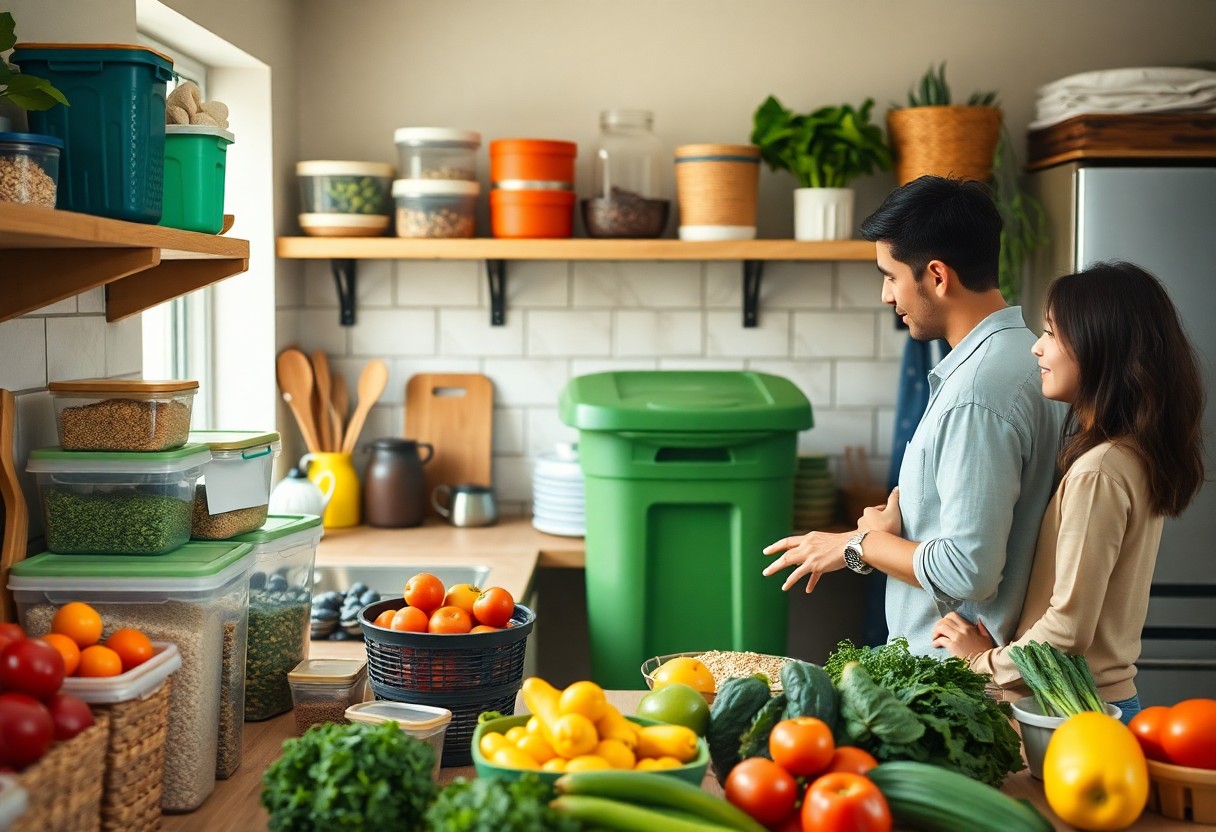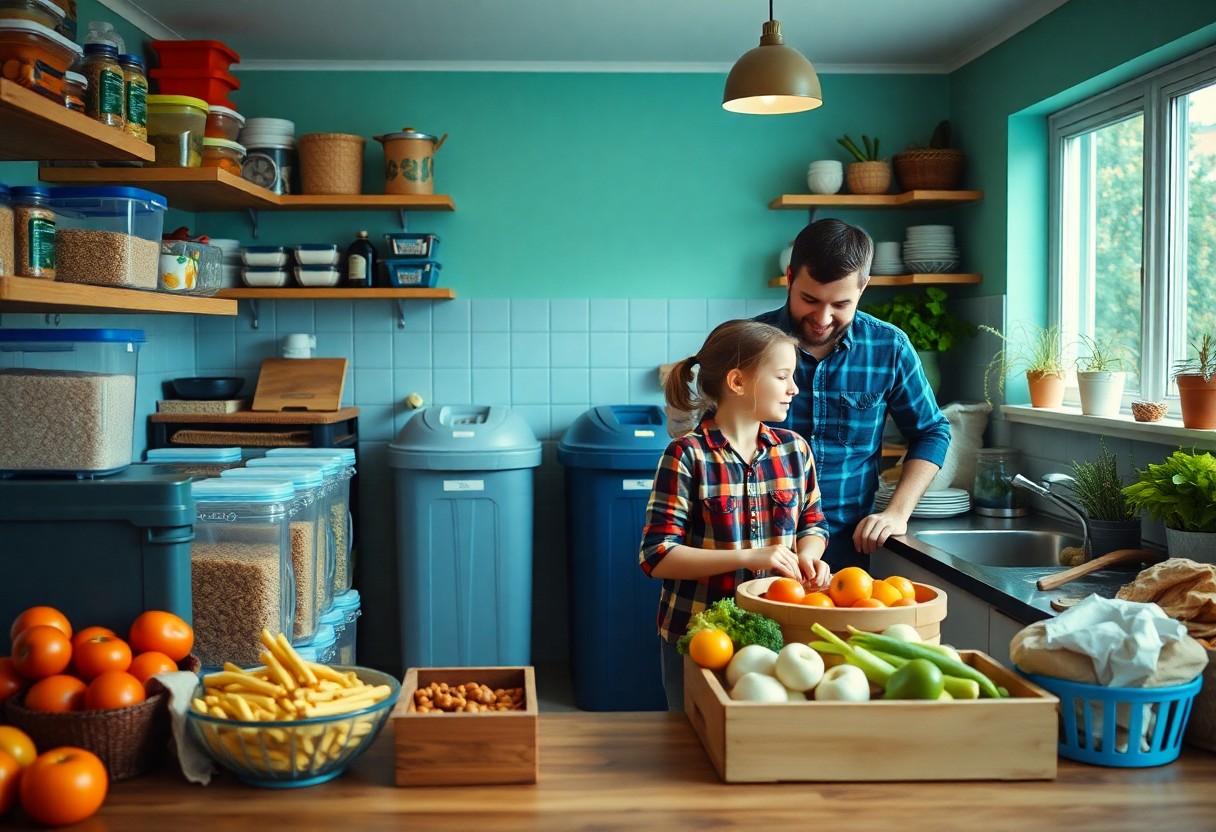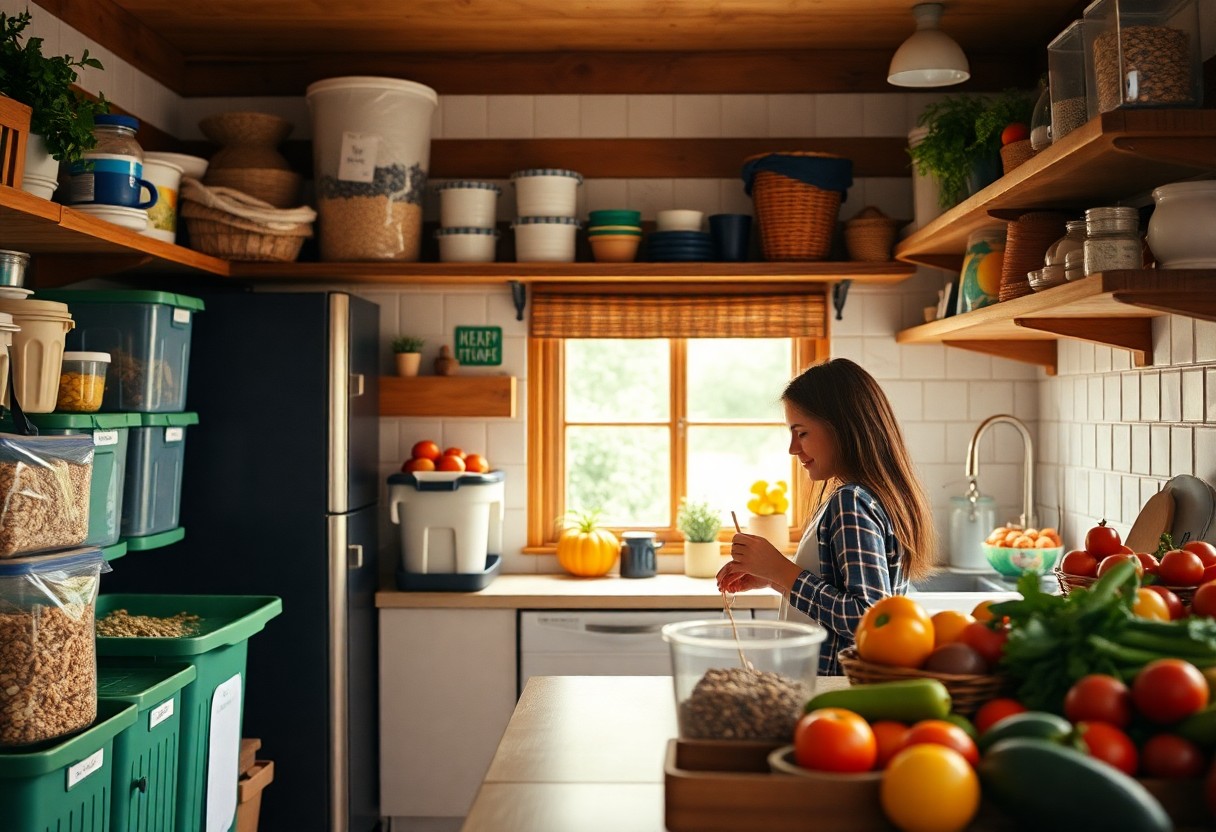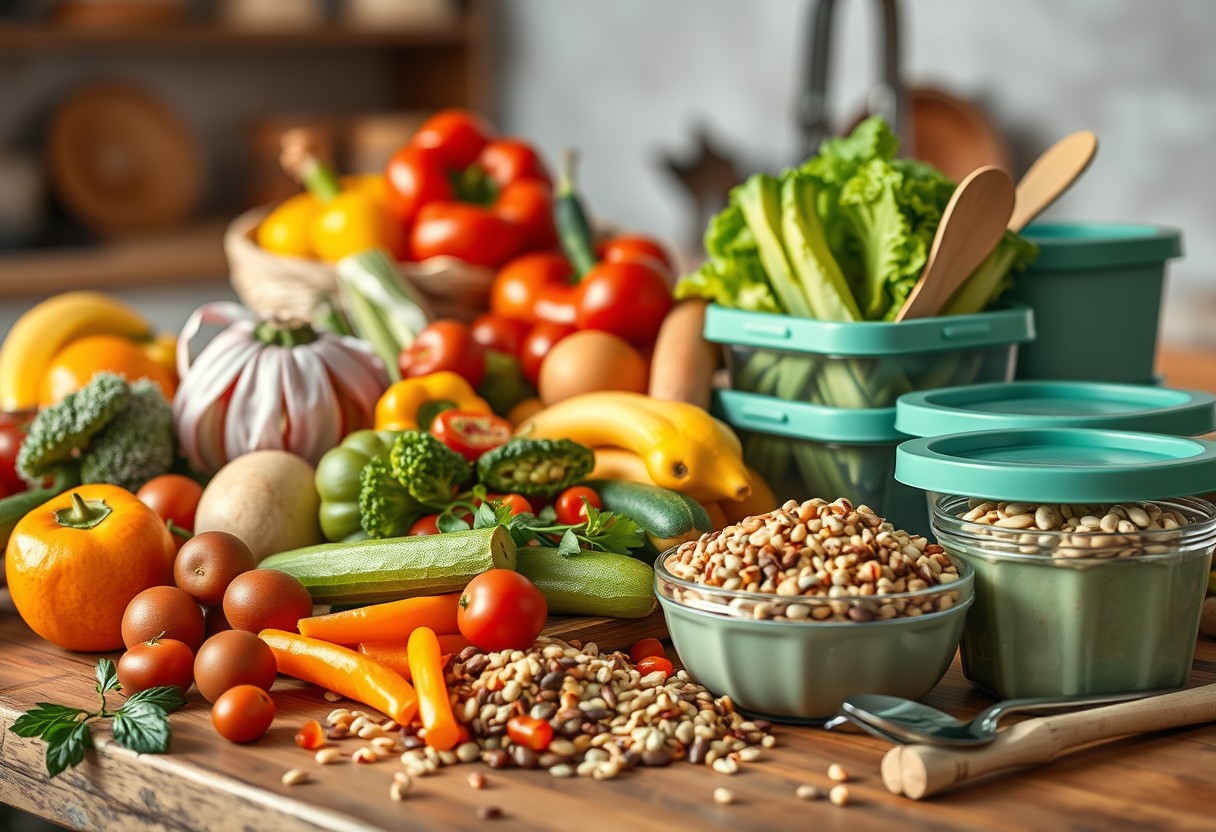Sustainability is not just a trend; it’s a necessary lifestyle choice for a healthier planet. If you’re looking to reduce your environmental impact, starting your journey towards zero waste living can seem daunting, but it doesn’t have to be. By implementing small yet impactful changes in your daily habits, you can significantly decrease waste and embrace a more sustainable way of life. In this post, you will discover practical steps you can take today to begin your zero waste journey and create a positive change in your community.
Understanding Zero Waste Living
The journey towards zero waste living begins with understanding its core principles and goals. By reducing your waste to the bare minimum, you can significantly decrease your environmental impact. This approach encourages mindful consumption and waste reduction. For more insights, check out How to go Zero Waste: Get Started and Ditch the Single-Use Life.
The Principles of Zero Waste
To embrace zero waste, you should follow its guiding principles which include refusing unnecessary products, reducing what you consume, reusing items whenever possible, recycling materials you cannot reuse, and composting organic waste. By adhering to these principles, you contribute to a more sustainable future while creating a cleaner environment.
Benefits of Adopting a Zero Waste Lifestyle
The shift to a zero waste lifestyle brings numerous benefits, including reduced pollution, conservation of resources, and significant savings. By decreasing single-use items and embracing sustainable alternatives, you not only help the planet but also enhance your overall quality of life.
Due to your commitment to reducing waste, you might discover savings on your monthly expenses as sustainable products often last longer than their disposable counterparts. Additionally, adopting zero waste practices can lead to a healthier lifestyle by encouraging the consumption of fresh, local, and organic foods while minimizing the intake of processed items. This holistic approach fosters a sense of community as you connect with like-minded individuals and support local initiatives aimed at promoting sustainability.
Assessing Your Current Waste Habits
It’s vital to take a step back and evaluate your current waste habits to determine where improvements can be made. Start by thinking about the types of items you frequently throw away, including food, packaging, and personal care products. By recognizing your disposal patterns, you can identify specific areas of your life that contribute more to waste, allowing you to create a targeted plan for reducing it.
Keeping a Waste Journal
Assessing your current habits can be greatly enhanced by keeping a waste journal. By tracking what you dispose of on a daily basis, you gain insight into your consumption patterns. Be sure to note not only the items you throw away but also the packaging and their origins. This practice will help highlight trends in your waste habits and serve as a foundation for developing more sustainable choices.
Identifying Areas for Improvement
Across your daily activities, small changes can have a significant impact on your overall waste output. Focus on aspects like your shopping habits, food consumption, and product choices. Look for opportunities to reduce single-use items, find alternative options, or adopt practices such as composting. These minor adjustments can lead to progressively more sustainable habits.
Indeed, analyzing your waste journal will reveal specific patterns that could use improvement. For example, if you notice an excess of food waste, you can explore meal planning or bulk buying to reduce spoilage. Similarly, if packaging waste is prevalent, consider opting for items with minimal or recyclable packaging. By pinpointing these areas, you can formulate actionable strategies that resonate with your lifestyle, ultimately steering you toward a more sustainable way of living.
Practical Steps to Reduce Waste
Some simple actions can significantly reduce your waste today. Start by evaluating your daily habits and identifying areas where you can cut back on single-use items. Make conscious choices about your purchases and consider implementing strategies from A Beginner’s Guide To Zero Waste Living for effective tips to help you minimize your environmental impact.
Upcycling and Reusing
Upcycling is a creative way to transform items you no longer use into something valuable or functional. Instead of tossing out old jars, fabric, or furniture, think about how you can repurpose them. This practice not only reduces waste but also encourages ingenuity and can save you money in the long run.
Sustainable Purchasing Practices
Behind every purchase you make lies the opportunity to reduce waste through sustainable practices. Opt for products with minimal packaging, choose items made from recycled materials, and support brands that prioritize sustainability. By being mindful of where and how you shop, you can help drive demand for eco-friendly products, ultimately leading to a positive impact on the environment.
Sustainable living starts with understanding the impact of your purchasing choices. Whenever possible, invest in quality items that are designed to last rather than disposable alternatives. Supporting local businesses and opting for second-hand items can also lessen your carbon footprint. By aligning your dollar with your values, you can foster a more sustainable market while reducing the waste generated by your consumer habits.

Minimizing Food Waste
Your journey towards zero waste living significantly benefits from minimizing food waste. By being mindful of your food consumption, you can reduce the amount of waste sent to landfills while also making better use of your resources. Simple changes in your habits, such as careful planning of meals and smarter shopping, lead to substantial reductions in what you throw away. Embracing mindful consumption not only conserves the environment but also fosters a more sustainable lifestyle.
Meal Planning and Preparation
Meal planning is an effective way to reduce food waste by ensuring that you purchase only what you need and utilize what you have. Start by creating a weekly menu based on what’s already in your pantry and fridge, accompanied by a shopping list. This practice helps you avoid impulse buys while optimizing your time in the kitchen, leading to delicious meals that minimize scraps.
Composting Basics
After learning to meal plan effectively, the next step in minimizing food waste is embracing composting. This process transforms organic waste into nutrient-rich soil for your garden, reducing the quantity of trash you generate. Composting not only keeps food scraps out of landfills, but it also contributes to healthier soil, promoting sustainable gardening.
It is important to understand what materials can be composted effectively. Common composting items include fruit and vegetable scraps, coffee grounds, eggshells, and certain paper products. Avoid adding meat, dairy, and oily foods, as they can attract pests. You can start small with a countertop compost bin or a larger outdoor compost pile, ensuring to rotate and aerate the materials regularly to promote decomposition. With a little effort, you’ll turn waste into a valuable resource for your plants.

Engaging with Your Community
All of us thrive within a community, and engaging with yours is key to making a bigger impact on your zero waste journey. By connecting with others who share your goals, you create a supportive network that encourages sustainable practices and helps spread awareness. Opportunities for collaboration and sharing resources can empower you and your neighbors to adopt better habits. Consider joining local discussions, attending workshops, and advocating for eco-friendly initiatives to amplify your efforts and inspire others around you.
Finding Local Zero Waste Groups
Waste reduction is easier when you join forces with like-minded individuals. Seek out local zero waste groups or online communities that resonate with your values. These groups often gather for discussions, workshops, and events aimed at fostering sustainable living practices. Participating in these communities not only equips you with valuable tips and knowledge but also connects you with individuals who share your passion for reducing waste.
Participating in Clean-Up Events
To make tangible contributions to your environment, participating in clean-up events is an effective way to get involved. These events provide a hands-on opportunity to remove litter from public spaces, thereby protecting wildlife and enhancing your community’s beauty.
Local clean-up events often welcome volunteers and can range from small neighborhood efforts to larger organized initiatives. By joining these activities, you not only aid in maintaining clean surroundings but also raise awareness about the consequences of waste generation. You might even inspire others to rethink their waste habits. Check local environmental groups, social media, or community boards for upcoming clean-ups in your area and take the opportunity to meet fellow eco-conscious individuals while making a difference.
Resources for Continued Learning
To deepen your knowledge and enhance your zero waste journey, consider exploring various resources available to you. From informative books and insightful documentaries to engaging online communities, there are many ways to stay informed and connect with others who share your passion for sustainable living.
Books and Documentaries
Around you, there is a wealth of literature and films focused on zero waste living. Titles such as “Zero Waste Home” by Bea Johnson and documentaries like “No Impact Man” offer valuable tips and inspiration. These resources can provide you with practical guidance and encourage you to adopt sustainable practices in your daily life.
Online Communities and Workshops
Before you initiate on your zero waste journey, consider joining online communities and participating in workshops. These platforms offer support, resources, and shared experiences from individuals who are also committed to reducing their waste. Engaging with like-minded people can provide motivation and fresh ideas to implement in your life.
Plus, many workshops and online groups feature interactive elements such as challenges, discussions, and Q&A sessions. This collaborative approach allows you to learn from the experiences of others while sharing your journey and progress. Connecting with these resources not only enriches your understanding but also helps you stay accountable in your commitment to zero waste living.
Conclusion
On the whole, beginning your journey towards zero waste living can start with small, manageable steps that seamlessly integrate into your daily routine. By making conscious choices about what you consume and how you dispose of it, you contribute to a sustainable future. You can explore practical tips and comprehensive strategies in The Ultimate Guide to Starting your Zero Waste Journey, allowing you to embrace a lifestyle that significantly reduces waste and promotes environmental responsibility.



